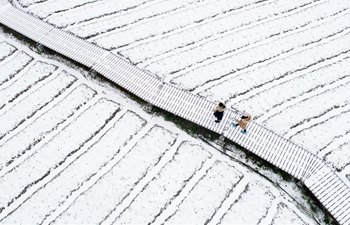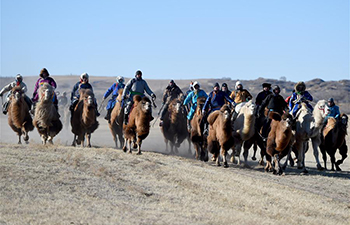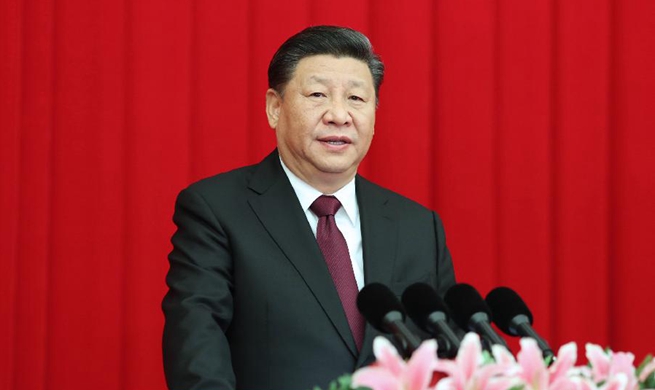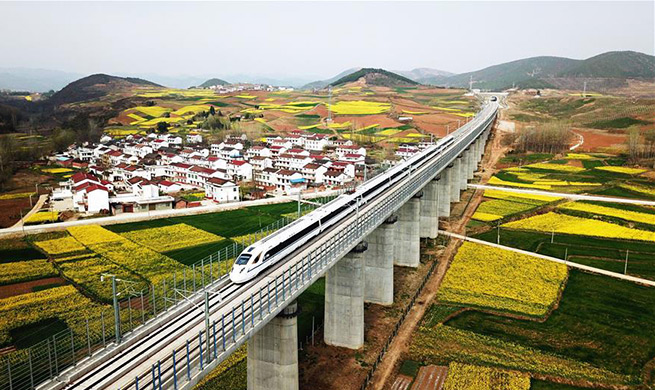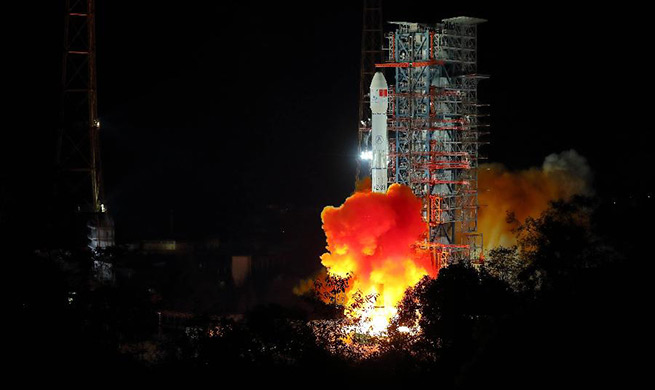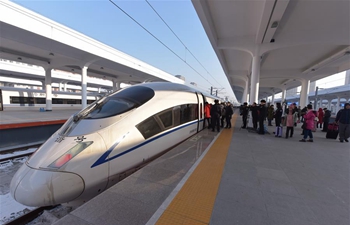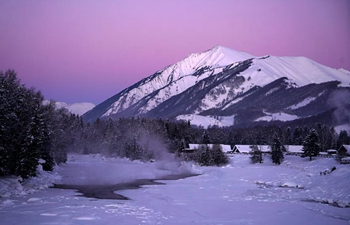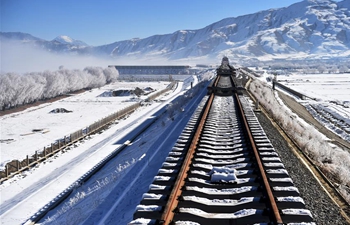TUNIS, Dec. 30 (Xinhua) -- Ahmed Ben Salem, a 19-year-old Tunisian boy, runs the camel-ride business in Star Wars film location Mos Espa, located in the Sahara desert in Tozeur region in southern Tunisia.
"There have been Chinese tourist groups here every day in December," said Salem, adding that "they prefer to sit on the nearby sand dunes in the morning, watching the sunrise in the desert and they told me it feels like on another planet."
"We welcome more Chinese tourists for visit, which could help promote local economy, and provide more businesses for us," Salem said.
Lying in the north point of African continent, with a history of over 3,000 years, Tunisia borders Sahara desert and Mediterranean sea, renowned for its rich tourism resources.
Houcine Melki, a 27-year-old local tour guide in Tamerza, a mountain oasis near Sahara desert, told Xinhua that winter is the peak tourism season for southern Tunisia, which provides various landscapes, including desert, oases, mountains and canyons.
As an increasingly popular destination for Chinese tourists, Tunisia has attracted nearly 22,000 Chinese tourists until October, 2018, a 43-percent year-on-year growth, according to Tunisian government.
In 2017, Tunisia began to offer visa-free entry for Chinese tourists and the number of Chinese tourists rocketed to around 20,000 last year, 12,000 more than in 2016.
China has become one of Tunisia's fastest-growing tourism markets.
In a guesthouse in Tamezret, a traditional Berber village in Gabes region in southern Tunisia, three rooms in local troglodyte style mainly focused on individual tourism. The Belgium manager Patrick Bourseaux has run this guesthouse with his wife since 2014.
"Chinese now account for over 40 percent in the international tourists. Tunisia's visa-free policy encourages more individual Chinese tourists here," said Patrick.
"Although they are from a completely different part of the world, Chinese tourists are not afraid to tour and explore this North African country by themselves," he added.
"We have received tourists almost worldwide, but Chinese tourists showed the most interest in local culture," said Patrick, adding that "they prepare incredibly well before their travel, already searching a lot of information."
Patrick also suggested that the government improve the local infrastructure, especially the public transportation, to provide better service.
According to Tunisian Ministry of Tourism and Handicrafts, Tunisia attaches great importance to Chinese market, and endeavors to make Chinese tourists' trip in Tunisia more convenient and enjoyable.
Chinese ambassador to Tunisia Wang Wenbin pointed out the bilateral tourism collaboration has been promoted in recent years, and tourism is among the prioritized cooperation sectors between China and Tunisia.
Tunisian Ambassador to China Dhia Khaled said "Tunisia is capable of and is willing to have more Chinese tourists. Tunisia values cooperation with China in tourism and looks forward to a higher level of cooperation."
Karim Jatlaoui, the representative of Tunisian National Tourism Office Beijing Bureau, expected Chinese tourists to increase to 50,000 by 2020.
Tunisia has witnessed a slump in its tourism since 2015 when three major terrorist attacks claimed the lives of more than 70 people, mostly foreign tourists and security forces.
Accounting for about eight percent of the country's GDP, tourism sector started to revive in 2017.
